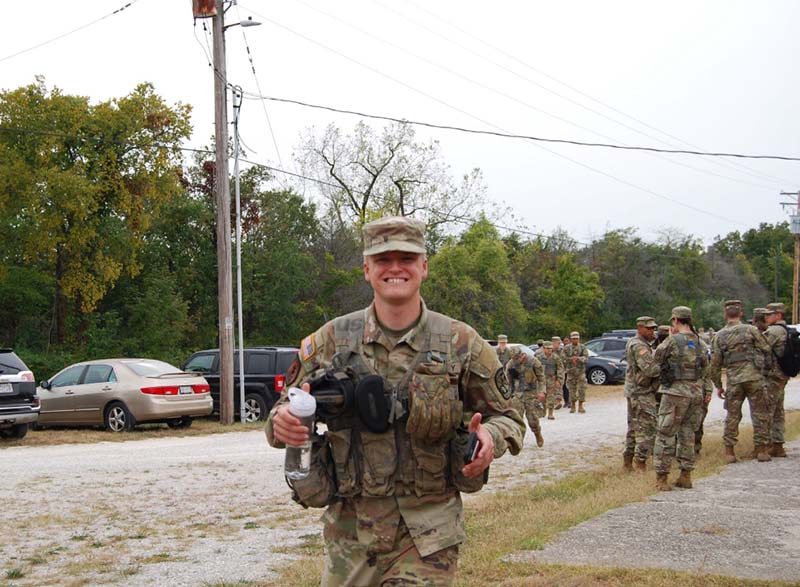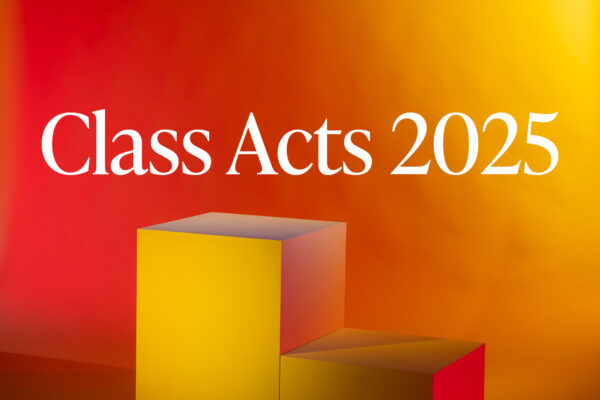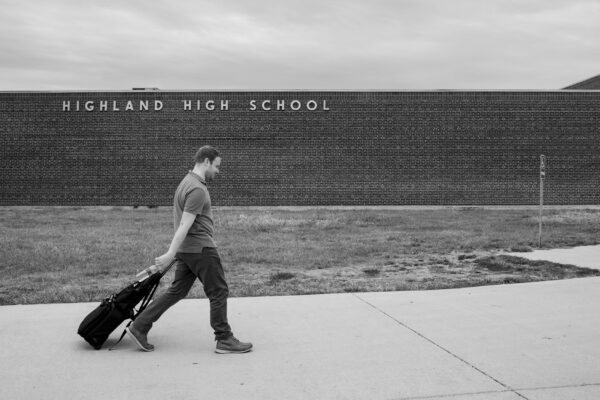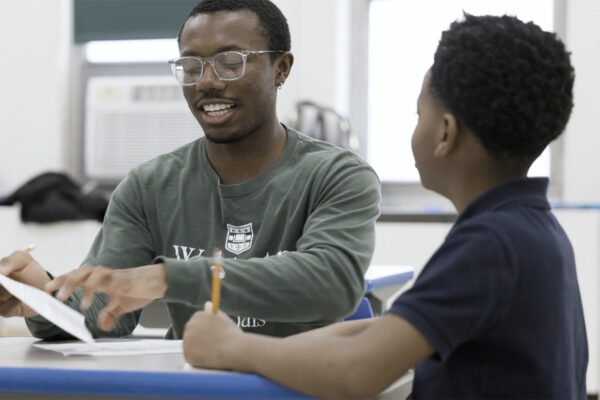Platoon leader for the Gateway Army ROTC Battalion. Residential advisor in the Brookings Residential Community. Rural peer ambassador for the Office of Admissions. Senior Andrew Rudolph has worn many hats — and uniforms — on campus.
“When I came here, I was very intentional about not only getting involved, but finding ways to lead with the goal of making this campus community a better place than I found it,” said Rudolph, who is majoring in global studies and in political science in Arts & Sciences.
Rudolph grew up in a family of nine children in Monticello, Ill., a small town near the University of Illinois, where his father is a professor. After graduation, he will complete officer training at Fort Huachuca, Ariz., and then attend WashU Law, where he plans to study international law.
Here, Rudolph reflects on his time at WashU and his growth as a leader.
You were voted platoon leader by the Gateway Battalion cadre and voted Outstanding Residential Advisor in 2024 and Outstanding WUSA in 2023. How have you supported these seemingly different populations?
I am interacting on a day-to-day basis with so many different kinds of people, whether that be first-year residents in the dorms or captains in the Army. But no matter what space I occupy, I attempt to be my authentic self, trying to get to know the real you. For my cadets, I’ve made it clear that you can ask for help
whenever, whether it’s an ROTC-related problem or not. I’ve also been intentional about disciplining in a way that is going to meet the needs of that cadet. Some want to be pushed; others respond better to a gentler approach. I’ve worked to build the same sort of relationships with residents. Sometimes when students are going through hard things, my caring self wants to find a solution. What I’ve learned is sometimes I just need to be a pair of listening ears.
How has your time as a ROTC cadet influenced your experience in the classroom?
ROTC has really encouraged me to face adversity head on in a way that can be applied in the classroom. I’ve become really comfortable asking for help. That was something that high school me never wanted to do. But I have failed so many times — in running tactical missions and during skills assessments — that I’ve had to learn how to pick myself up from that adversity, problem solve and then use that knowledge to better myself and my subordinates.

As a Rural Scholars ambassador, you introduced rural high school students to WashU and St. Louis through the Rural Scholars Academy. You have since helped establish the Rural Students Collective for rural students. What’s it like being a rural student here?
Being a rural student has always been an important part of my identity. And so I was really excited to help promote rural diversity by creating a club and mentoring students who may have, like me, experienced a little bit of culture shock coming here. I’ve had friends say, ‘I love St. Louis but once you leave the city you find yourself in the middle of nowhere. And I’m like, ‘that middle of nowhere’ is my home.’ But a great thing about WashU is that people are curious, people want to learn. So I try to educate people about rural communities and lifestyles.
Honestly, that’s how I approach every interaction at WashU. I grew up with very different experiences — socially, economically, politically — than a lot of people here. A lot of times when I go to bed, I reflect on the different conversations I’ve had that day and the different opinions and perspectives I encountered, sometimes on really hot topics. Those experiences drive me to bridge the gaps while staying true to myself.


